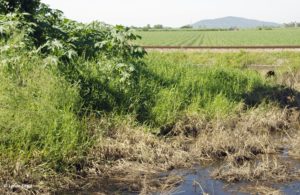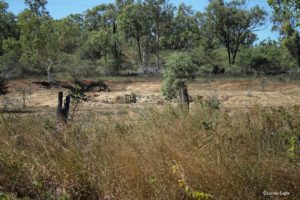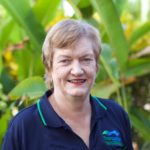Harnessing the science of social marketing & behaviour change for improved water quality in the GBR: a desktop review
Introduction
 An analysis of marketing communication documents supplied by Australian and Queensland Governments and other program managers as well as extension services provides guidelines for the development and modification of communication material in the agricultural-environmental sector with the aim of increasing uptake of water quality improvement programmes in the Great Barrier Reef Basin.
An analysis of marketing communication documents supplied by Australian and Queensland Governments and other program managers as well as extension services provides guidelines for the development and modification of communication material in the agricultural-environmental sector with the aim of increasing uptake of water quality improvement programmes in the Great Barrier Reef Basin.
This project (Project 3.1.3) funded by the NESP Tropical Water Quality Hub, extends NESP Project 2.1.3 Harnessing the science of social marketing and behaviour change for improved water quality in the GBR: an action research project and confirms findings that communication material provided to land managers is written in too complex language (beyond the recommended reading level of Year 9). Further, the message tone used in some material may be a barrier to communication and visual imagery may have unintended effects on communication.
 The project produced the Best Practice Guide for Development and Modification of Communication Material, which is intended as a guide to the design of information material, particularly printed material such as brochures and posters, but also for web pages. The guide uses de-identified examples from material supplied by stakeholders for readability evaluation to illustrate concepts discussed in relevant sections. This Guide is supported by a Readability Communication Planning Checklist. The guide is not intended to provide an exhaustive range of checks, but rather as a guide to improving the readability of published materials.
The project produced the Best Practice Guide for Development and Modification of Communication Material, which is intended as a guide to the design of information material, particularly printed material such as brochures and posters, but also for web pages. The guide uses de-identified examples from material supplied by stakeholders for readability evaluation to illustrate concepts discussed in relevant sections. This Guide is supported by a Readability Communication Planning Checklist. The guide is not intended to provide an exhaustive range of checks, but rather as a guide to improving the readability of published materials.
Improved communication within marketing material for water quality programs will help to achieve consistency in approach and message clarity, amongst the gamut of communication materials produced for projects that support the Reef 2050 Plan. Improving the way projects communicate and get buy-in from land managers can help to ensure greater project uptake, associated positive results and lasting behaviour change.

